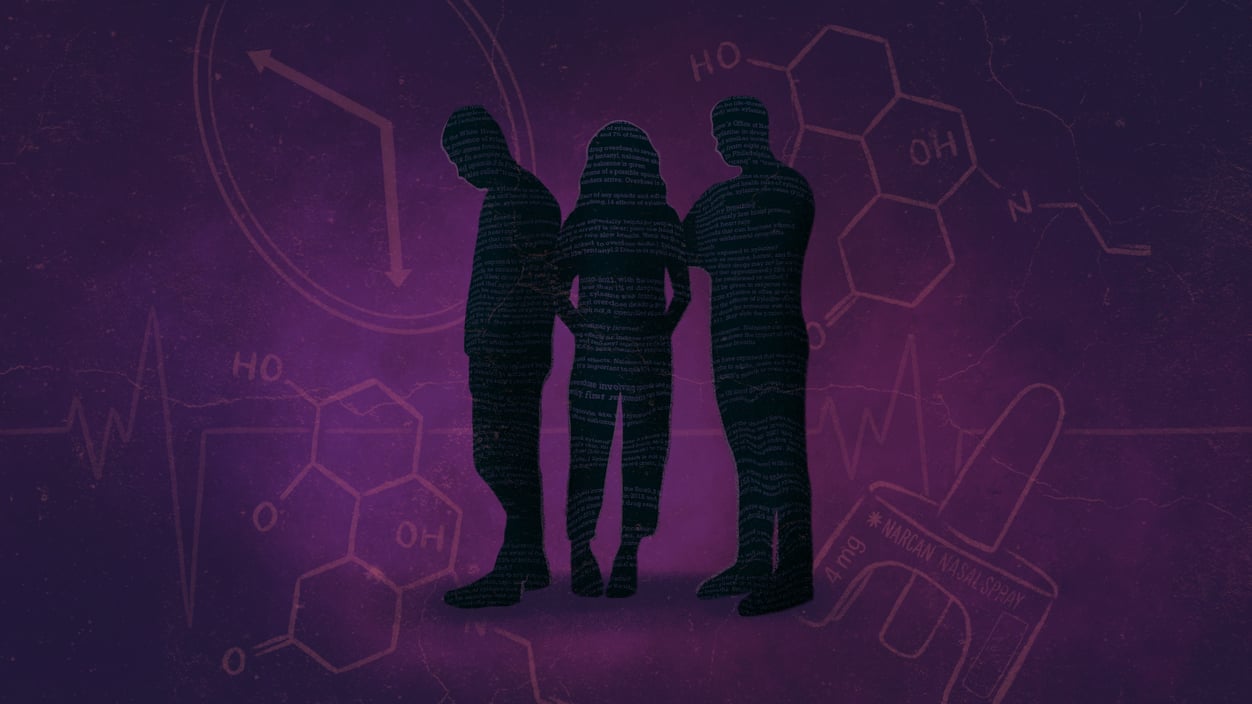Closer Look
'Tranq' is making overdoses harder to reverse
 Molly Ferguson for STAT
Molly Ferguson for STAT
Tranq has changed everything. The powerful sedative, officially called xylazine, is spreading rapidly throughout the U.S. illicit opioid supply and complicating efforts to reverse overdoses. Previous guidance about opioid overdoses was clear: Administer naloxone, then call 911. But because tranq is not an opioid, spraying naloxone in an overdosing person's nose and waiting a few minutes for them to wake up won't work. People experiencing overdoses from a combination of opioids and xylazine need far more time and care before they regain consciousness — if they wake up at all.
"Six years ago, when you would hit somebody with naloxone, they would be very responsive," Sarah Laurel of Savage Sisters in Philadelphia told STAT's Lev Facher. Now, "I started noticing that my friends, when we would hit them with Narcan, they weren't responsive. Their color was not returning, and they weren't beginning to breathe on their own." The new priority: oxygen and more time. Read more.
health tech
A new venture plans to vet AI models and root out weaknesses
The market for AI in health care is hot. It's also opaque. While multiple research studies on individual products and approaches have been published in scientific journals, it's hard to compare one against another to see how they stack up or might actually perform in patients. A new company hopes to fill that gap, offering a for-profit public service to evaluate AI products based on independent data designed to root out weaknesses and reveal bias. The company, called Dandelion Health, will launch a pilot program next month to test algorithms that use electrocardiograms to predict heart conditions.
There's just one challenge: convincing AI developers to expose their products to more rigorous testing. To achieve its goal of establishing benchmarks, Dandelion needs enough data, from enough sources, to adequately assess whether a given algorithm will work across different racial, ethnic, and geographic groups. STAT's Casey Ross explains.
health inequity
Opinion: Deaths like Tori Bowie's are far too common among Black women
When three-time Olympian Tori Bowie died in her home this month from childbirth complications, she was the third of four Olympic teammates to die or nearly die in childbirth. Even Serena Williams, one of the wealthiest and most famous athletes in the world, had to repeatedly demand lifesaving care while being dismissed by her care team following an emergency C-section, Omare Jimmerson, executive director of the Tulsa Birth Equity Initiative, reminds us in a STAT First Opinion.
These cases show that social determinants of health don't explain all health inequities. "It seems that providers are simply more comfortable talking about social determinants of health than they are with doing the hard work of tackling bias," she says. "You can be a healthy, wealthy, educated, and aware Black woman and still have a higher risk of maternal mortality. The problem is not access to care." Read more.
On the latest episode of the "First Opinion Podcast," First Opinion Editor Torie Bosch speaks with attorney Richard Hughes about how to protect and expand access to PrEP, the Supreme Court's current approach to health care, and more. Listen here.


No comments